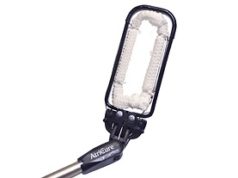
New data from PARADIGM-HF have shown that the investigational angiotensin receptor-neprilysin inhibitor (ARNI) LCZ696 (Novartis) has the potential to prevent the clinical progression of surviving patients with heart failure more effectively than enalapril.
At the European Society of Cardiology congress 2014, the PARADIGM-HF (Prospective comparison of ARNI with ACEI to determine impact on global mortality and morbidity in heart failure) trial showed that LCZ696 cut deaths from cardiovascular causes by 20% and heart failure hospitalisations by 21% compared to the gold standard angiotensin-converting enzyme (ACE) inhibitor, enalapril.
The new data, presented by John McMurray (University of Glasgow, Glasgow, United Kingdom) for the first time at the American Heart Association Scientific Sessions (AHA; 15-19 November, Chicago, USA), focused on the effect of treatment on the clinical progression of heart failure in surviving patients. Results were simultaneously published in Circulation by Milton Packer, John McMurray and co-authors.
The double-blind trial, which enrolled 8,399 (enalapril 10mg: 4,212, LCZ696 200mg: 4187) patients with heart failure with mild to moderate symptoms and a reduced ejection fraction (≤40%), is “among the first trials to demonstrate a reduction of clinical worsening of surviving patients [with heart failure],” write Packer et al.
At AHA, McMurray told delegates that compared with enalapril, patients on LCZ696 are less likely to show symptomatic deterioration, to need intensification or oral therapy or addition of intravenous therapy, to visit the emergency department, to be admitted to hospital, to be admitted to the intensive care unit if hospitalised, to require devices or surgery for worsening end-stage heart failure, to die prematurely (either suddenly or from worsening heart failure) and to show biomarker evidence of cardiac wall-stress and myocyte injury.
Key findings from these new data demonstrated that LCZ696:
- cut the risk of sudden death by 20% (p=0.008) and death from worsening heart failure by 21% (p=0.04);
- cut first heart failure hospitalisation by 21% (537 vs. 658; p<0.001) and all heart failure hospitalisations by 23% (851 vs. 1,079; p<0.001) respectively;
- cut hospitalisations for any reason and for any cardiovascular reason by 16% (any reason 3,564 vs. 4,053; p<0.0001, cardiovascular reason 2,216 vs. 2,537; p<0.001);
- cut the need for intensification of heart failure treatment by 16% (520 vs 604; p=0.003);
- cut emergency visits for heart failure by 30% (151 vs. 208; P=0.017).
Additionally, LCZ696 patients had 18% (768 vs 879; p=0.005) fewer stays in intensive care and were 31% (161 vs 229; p<0.001) less likely to receive intravenous positive inotropic drugs compared to those taking enalapril, and 22% less likely to have cardiac transplantation or implantation of a cardiac device for heart failure.
In addition, there were fewer patients who received a left ventricular assist device or underwent cardiac transplantation in the LCZ696 group (n=13) compared to the enalapril group (n=23).
Packer et al note in the article that a larger proportion of patients in the enalapril group “were considered by their physicians to be worse (by at least 1 NYHA class) than in the LCZ696 group” and add that the difference between the two groups was significant at both eight and 12 months follow-up. Additionally, “fewer surviving patients considered themselves worse (by at least five points in the KCCQ total symptom score) in the LCZ696 group than in the enalapril group.
Analysis of cardiac biomarkers (NTpro-BNP and troponin) showed levels were consistently lower with LCZ696 than enalapril, reflecting reduced heart stress and subsequent damage.
McMurray concluded that compared with enalapril, “LCZ696 slows progression of heart failure, delaying or preventing non-fatal and fatal worsening.”
Greg Fonarow (UCLA Division of Cardiology, Los Angeles, USA) discussant of the PARADIGM-HF data at AHA, said that this trial raises a few questions, among those: Should one trial be sufficient to change clinical practice? What additional clinical trials and registry studies are needed? What will be the cost effectiveness/value of this therapy?
Novartis announced that it plans to complete the file for marketing authorisation of LCZ696 with the US Federal Drug Authority by the end of 2014 and in the European Union in early 2015.











